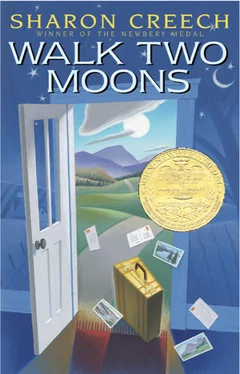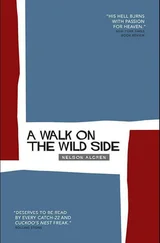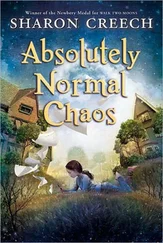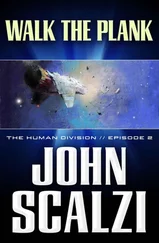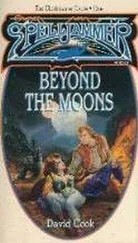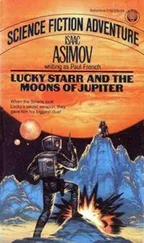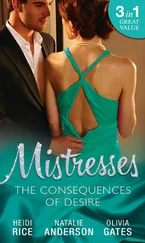The previous weekend, we had had a school sports day. Parents were watching their children show off, and there were even some events for the parents too, such as the three-legged race and pass-the-grapefruit. My father could not come, but Mary Lou’s parents were there and so were Phoebe’s.
Phoebe had said, “The games are a little childish sometimes, which is why my parents don’t usually participate.” Her parents stood on the sidelines while Mr. and Mrs. Finney ran around shouting “Over here!” and “Way-ta-go!” In the three-legged race, the Finneys kept falling over. Phoebe said, “I wonder if Mary Lou is embarrassed because of the way her parents are acting.”
I didn’t think it was embarrassing. I thought it was nice, but I didn’t say so to Phoebe. I think that deep down Phoebe thought it was nice too, and she wished her own parents would act more like the Finneys. She couldn’t admit this, though, and in a way, I liked this about Phoebe—that she tried to defend her family.
On the day that Phoebe and I met the potential lunatic and then went over to Mary Lou’s, a couple other peculiar things happened. We were sitting on the floor of Mary Lou’s room, and Phoebe was telling Mary Lou about the mysterious potential lunatic. Mary Lou’s brothers, Dennis, Doug, and Tommy, kept dashing in and out of the room, leaping on the bed and squirting us with squirt guns.
Mary Lou’s cousin Ben was lying on her bed, staring at me with his black, black eyes. They looked like two sparkly black discs set into big, round sockets. His dark eyelashes were long and feathery, casting shadows on his cheeks.
“I like your hair,” he said to me. “Can you sit on it?”
“Yes, if I want.”
Ben picked up a piece of paper from Mary Lou’s desk, lay back down on the bed and drew a picture of a lizardlike creature with long black hair that, as it ran down the lizard’s back and under its bottom, became a chair with legs. Underneath this, Ben had written, “Salamander sitting on her hair.”
“Very amusing,” Phoebe said. She left the room, and Mary Lou followed her.
I turned around to hand the drawing back to Ben, just as he leaned forward and mashed his lips into my collarbone. His lips rested there a moment. My nose was pressed into his hair, which smelled like grapefruit. Then he rolled off the bed, grabbed the drawing, and dashed out of the room.
Did he actually kiss my collarbone? And if he did, why did he do that? Was the kiss supposed to land somewhere else, like on my mouth, for example? That was a chilling thought. Had I imagined it? Maybe he merely brushed against me as he was rolling off the bed.
On the way home from Mary Lou’s that day, Phoebe said, “Wasn’t it, well, loud there?”
“I didn’t mind,” I said. I was thinking of something my father once said to my mother, “We’ll fill the house up with children! We’ll fill it right up to the brim!” But they hadn’t filled it up. It was just me and them, and then it was just me and my father.
When we got back to Phoebe’s house, her mother was lying on the couch, dabbing at her eyes with a tissue. “Is something wrong?” Phoebe asked.
“Oh no,” Mrs. Winterbottom said. “Nothing’s wrong.”
Then Phoebe told her mother about the potential lunatic who had come to the house earlier. This news upset Mrs. Winterbottom. She wanted to know exactly what he had said and what Phoebe said and what he looked like and how he acted and how Phoebe acted, on and on. At last Mrs. Winterbottom said, “I think we had better not mention this to your father.” She reached forward as if to hug Phoebe, but Phoebe pulled away.
Later Phoebe said, “That’s odd. Usually my mother tells my father absolutely everything.”
“Maybe she’s just trying to save you from getting into trouble for talking with a stranger.”
“I still don’t like keeping it secret from him,” Phoebe said.
We walked out onto her porch and there, lying on the top step was a white envelope. There was no name or anything on the outside. I thought it was one of those advertisements for painting your house or cleaning your carpets. Phoebe opened it. “Gosh,” she said. Inside was a small piece of blue paper and on it was printed this message: Don’t judge a man until you’ve walked two moons in his moccasins.
“What an odd thing,” Phoebe said.
When Phoebe showed the message to her mother, Mrs. Winterbottom clutched at her collar. “Who could it be for?” Mrs. Winterbottom asked.
Mr. Winterbottom came in the back door, carrying his golf clubs. “Look, George,” Mrs. Winterbottom said. “Who could this be for?”
“I couldn’t say, really,” Mr. Winterbottom said.
“But George, why would someone send us that message?”
“I couldn’t say, Norma. Maybe it isn’t for us.”
“Not for us?” Mrs. Winterbottom said. “But it was on our steps.”
“Really, Norma. It could be for anyone. Maybe it’s for Prudence. Or Phoebe.”
“Phoebe?” Mrs. Winterbottom asked. “Is it for you?”
“For me?” Phoebe said. “I don’t think so.”
“Well, who is it for ?” Mrs. Winterbottom said. She was awfully worried. I believe she thought it came from the potential lunatic.
Ihad just finished telling Gram and Gramps about the mysterious message when Gramps pulled off the freeway. He said he was tired of chewing up the road, and the white lines down the middle of the highway were starting to wiggle. As he drove into Madison, Wisconsin, Gram said, “I feel a little sorry for Mrs. Winterbottom. She doesn’t sound very happy.”
“They all sound screwy, if you ask me,” Gramps said.
“Being a mother is like trying to hold a wolf by the ears,” Gram said. “If you have three or four—or more—chickabiddies, you’re dancing on a hot griddle all the time. You don’t have time to think about anything else. And if you’ve only got one or two, it’s almost harder. You have room left over—empty spaces that you think you’ve got to fill up.”
“Well, it sure ain’t a cinch being a father, either,” Gramps said.
Gram touched his arm. “Horsefeathers,” she said.
Round and round we drove until Gramps saw a parking space. Another car saw it too, but Gramps was fast and pulled in, and when the man in the other car waved his fist, Gramps said, “I’m a veteran. See this leg? Shrapnel from German guns. I saved our country!”
We did not have the correct change for the parking meter, so Gramps wrote a long note about how he was a visitor from Bybanks, Kentucky, and he was a World War II veteran with German shrapnel in his leg, and he kindly appreciated the members of the fair city of Madison allowing him to park in this space even though he did not have the correct change for the meter. He put this note on the dashboard.
“Do you really have German shrapnel in your leg?” I asked.
Gramps looked up at the sky. “Mighty nice day,” he said.
The shrapnel was imaginary. Sometimes I am a little slow to figure these things out. My father once said I was as gullible as a fish. I thought he said edible . I thought he meant I was tasty.
The city of Madison sprawls between two lakes, Lake Mendota and Lake Monona, and dribbling out of these are other piddly lakes. It seemed as if the whole city was on vacation, with people riding around on their bikes and walking along the lakes and feeding the ducks and eating and canoeing and windsurfing. I’d never seen anything like it. Gram kept saying, “Huzza, huzza!”
There’s a part of the city where no cars can go, and thousands of people stroll around eating ice cream. We went into Ella’s Kosher Deli and Ice Cream Parlor and ate pastrami sandwiches and kosher dill pickles, followed by raspberry ice cream. After we walked around some more, we were hungry again, and so we had lemon tea and blueberry muffins at the Steep and Brew.
Читать дальше
